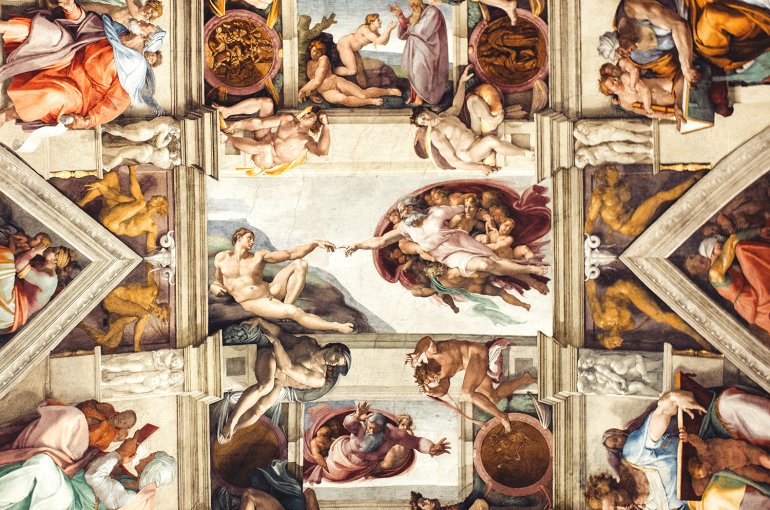Why religion matters for climate change, whatever you believe
BLOG: Climate Confessions

When you hear the words religion and climate change, many of you will instantly think of evangelical climate deniers and conspiracy theorists. The more charitable may think of Pope Francis and his pushing of the environment to the top of the Catholic agenda. Perhaps those more familiar will think of the role of indigenous cultures, Romanticism and Buddhism in inspiring transformation. Very few though, will think of the laboratories and boardrooms in which scientists and policymakers debate over the facts, and what these imply for social and economic life.
— by Timothy Stacey
Yet what if these settings too, perhaps especially because they appear free from religion, are enthralled by religious repertoires of their own? What if these repertoires are locking in some socio-ecological futures and locking out others? And what if unravelling these repertoires and selectively rejecting, revising, and remaking them could open up new pathways to change? These are the questions that drive me, and which I explore in this blog.
Myths, rituals, magic, and tradition

By religious repertoires, I mean a set of practices that make some ways of perceiving the world meaningful and others meaningless: what human and other beings are; what the world is; how these interrelate; and whether things could or should be different. I break repertoires down into myths, rituals, magic, and tradition. I have discussed each of these categories in great detail elsewhere, [i] and will reflect on them further in the coming months. But briefly here:
By myths, I mean stories of great events and characters that shape one’s understanding of how the world is, should, or could be. By rituals I mean routines and performances designed to bring one’s character in line with how the world is, should, or could be. By magic I mean objects, events, or technologies that make another world seem possible against the odds or without sufficient evidence. And by traditions I mean the ideas and objects we inherit from the past and pass on to the future, as well as the ways in which we do this.
When he wrote Confessions at the end of the 4th century, Augustine was simultaneously confessing his life of sins and confessing his faith in Jesus Christ. Playing on this, Climate Confessions is an attempt to critically reflect on the religious repertoires underlying our socio-ecological attitudes and actions.
I take you on a tour of the repertoires that weave their way through our climate debates and actions: from the myths of great floods that pervade climate policy, to rituals of grieving and hope found among climate activists and regenerative farmers. Usually, you will hear from me. Occasionally I’ll invite guest contributions.
It is time to recognize that rationality alone is insufficient to inspire action
Why do we need research like this now?
Many readers will think of themselves and their institutions as beyond religion. For some, this is a matter of principle: modern politics was explicitly developed to be religion-neutral. This is how we make policies that are fair to all, regardless of their idea of how a life should and could be lived. And it’s how we avoid conflict.[ii] Science too is explicitly designed to be free of faith positions and tradition.[iii] Particularly when it comes to climate change, it has never been more important to listen to the science and take bold but impartial action.
But three points are worth considering. First, this position itself is underscored by deep repertoires that reify a clear idea of what humans are, what they are capable of, and what a good life looks like. Recall the myths of religious violence,[iv] or of great figures like Galileo and Darwin, celebrated not only for their genius but also for how they stood up to the church. Think about our rituals of remembering the dead, or of welcoming new citizens into our countries and institutions. And then think of the beliefs and lifestyles these rituals uphold: ideas of freedom, to think what you like, have sex with who you like, and move where you like, when you like. Many people have given their lives for such ideas, but so have many people been killed or marginalized for failing to live them out as prescribed by elites: from indigenous groups outside of the West to Muslims and working classes within the West. As I shall be showing in the coming months, these repertoires directly impact the socio-ecological futures that we consider desirable and plausible. A future without the freedoms we currently enjoy doesn’t bear thinking about.
Second, if ever modern politics and science were capable of impartiality, now is a time that politicians and scientists themselves, at least as much as those they are supposed to guide, deeply disagree about the direction in which we should be headed, as well as how to get there. In my own department, there are deep divides over not only what kind of research should be funded, but who we should be willing to take money from.
Third, in the wake of populism, it is time to recognize that rationality alone is insufficient to inspire action. Those with the most inspiring repertoires control the agenda. It is crucial to take stock of the repertoires we are performing, to reject those that are undermining our work, replenish those that are still relevant but faded, and remake new repertoires to suit our current needs.
In the coming months, I’ll be unravelling the repertoires that make their way into unexpected places. I’ll explore how they work and what impact they have. And with these tools, I’ll speculate about the new repertoires we can weave together for a socio-ecologically sound future. I invite you to read, to take up these tools for yourself, and to get in touch if you wish to collaborate in making new repertoires together.
[i] Stacey, Timothy. Saving Liberalism From Itself: The Spirit of Political Participation. Bristol: Bristol University Press, 2022.
[ii] For an example of this argument, see Fukuyama, Francis. Liberalism and Its Discontents: Francis Fukuyama. London: Profile Books, 2022. pp.5-6. For a critique, see
[iii] Josephson Storm, Jason Ananda. The Myth of Disenchantment: Magic, Modernity, and the Birth of the Human Sciences. Chicago ; London, 2017.
[iv] Cavanaugh, William T. The Myth of Religious Violence: Secular Ideology and the Roots of Modern Conflict. Oxford ; New York: Oxford University Press, 2009.
Climate Confessions is a monthly blog series in which Timothy Stacey reveals the “religious repertoires” associated with sustainability in various sectors. From the myths of great floods that dominate in Dutch politics to the rituals of reconnecting with other humans and the other-than-human found among activists, each month, Tim invites you into the repertoires that lurk beneath the surface, shaping sustainability in an otherwise secular world. For more formal reflections, see Tim’s peer-reviewed research: www.uu.nl/staff/TJStacey/Publications. To discuss how repertoires might transform your practice, get in touch t.j.stacey@uu.nl

